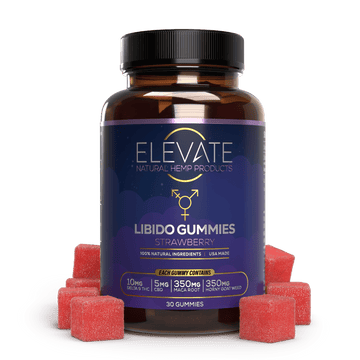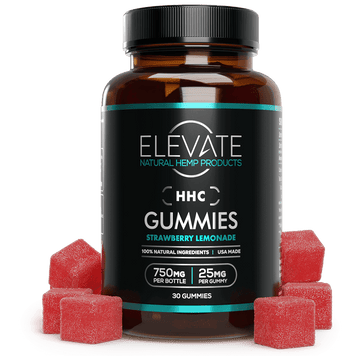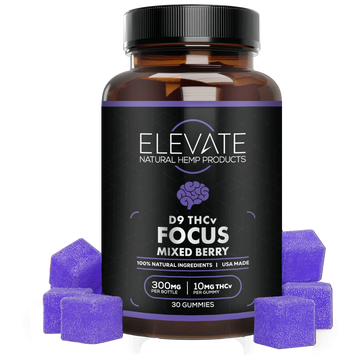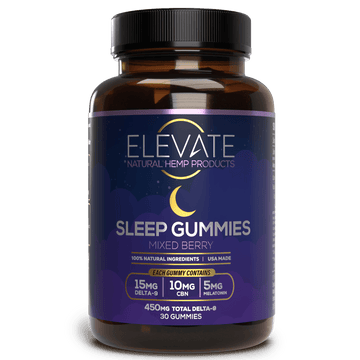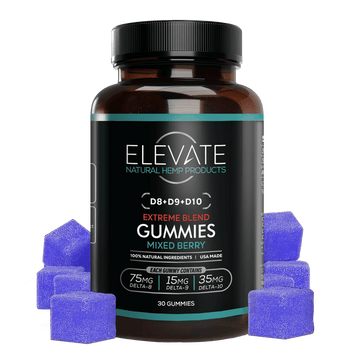Delta 8 Products in Texas: What You Need to Know

Delta 8 in Texas:
Delta 8 THC is currently legal in Texas under state law following the 2018 Farm Bill. Products must contain less than 0.3% Delta 9 THC. Recent legislation attempted to ban it but failed. Buy from reputable sources with lab testing. Laws may change.
Table of Contents
- Key Takeaways:
- Why Understanding Delta 8 Laws In Texas Matters
- Understanding Texas Hemp Law And The 2018 Farm Bill
- How Delta 8 Products Are Regulated Under State Law
- What Consumers Need To Know Before Buying Delta 8 In Texas
- Where To Buy Legal Delta 8 In Texas With Confidence
- How To Stay Updated On Texas Hemp Law Changes
- Final Thoughts
- Frequently Asked Questions About Is Delta 8 Legal In Texas?
- Related Articles
You’ve probably seen Delta 8 everywhere, from local smoke shops to online stores, all promising relaxation and relief. But as you reach for that package of gummies, a question likely pops into your head: Is this actually legal to buy in Texas? The answer is more complicated than a simple yes or no. Because of shifting regulations and ongoing court cases, the rules are nuanced. This guide was created for the practical shopper who just wants a straight answer. We’ll explain the key laws you need to know and provide a simple checklist for identifying safe, compliant, and effective Delta 8 products Texas consumers can trust.
Key Takeaways:
- Delta 8 Is Not Explicitly Banned in Texas: As of now, hemp-derived Delta 8 THC is legal in Texas as long as the product contains less than 0.3% Delta 9 THC by dry weight, though laws remain subject to change.
- Product Legitimacy Depends on Lab Testing & Transparency: Always look for third-party lab results (COAs), clearly labeled ingredients, and American-sourced hemp to ensure Delta 8 product safety and legal compliance.
- Stay Updated on Texas Delta 8 Laws: Monitoring official sources, cannabis advocacy groups, and trusted local retailers can help you navigate ongoing changes in Delta 8 regulation across Texas.
If you're living in Texas and shopping for hemp products, you’ve probably heard conflicting stories about Delta 8 THC. Some retailers say it's fully legal. Others quietly pulled it off the shelves. And if you’ve tried to make sense of the headlines, you’re not alone—Delta 8’s legal status in Texas has been a legal rollercoaster, leaving everyday buyers unsure of what’s allowed.
In this blog, we’ll break down the most current Texas laws around Delta 8 THC, highlight what’s changed, what remains in place, and how it affects you as a consumer. This is where you start if you want to make safe, informed purchases in Texas.
Why Understanding Delta 8 Laws In Texas Matters
Navigating the legal status of Delta 8 THC in Texas isn’t just about compliance—it’s about making empowered choices for your wellness whether you’re seeking relaxation, pain relief, or an elevation in mood, understanding the laws surrounding Delta 8 directly impacts the safety, accessibility, and reliability of your cannabis experience.
Empowered Consumers Make Informed Decisions
Staying up-to-date with Texas regulations on Delta 8 means you can confidently choose the right product for your needs. Knowing the law helps you avoid unforeseen legal challenges, ensuring your wellness journey remains uninterrupted and stress-free. Informed consumers are also better equipped to seek out products tested for potency and purity, protecting themselves from low-quality or mislabeled items.
Safe Access Begins With Legal Knowledge
Accessing premium hemp products is only possible when you understand what is— and isn’t— permitted under state law. Current Delta 8 regulations in Texas shape how and where you can legally purchase, possess, or use these products. By understanding your rights and responsibilities, you safeguard both your health and your peace of mind, supporting a responsible and confident approach to cannabis.
The Size and Scope of the Texas Hemp Market
The hemp industry in Texas is anything but small. With nearly 9,000 businesses registered to sell hemp products and hundreds more licensed to produce them, the market is a clear reflection of massive consumer demand. This incredible growth shows just how many Texans are turning to cannabinoids like Delta 8 for wellness, relaxation, and relief. However, this rapid expansion also means the market is crowded and the legal landscape is constantly in motion. For you, this means that while you have plenty of choices, it’s more important than ever to be selective. The sheer number of sellers makes it crucial to find transparent brands that prioritize safety and provide clear, third-party lab results for their products.
Understanding Texas Hemp Law And The 2018 Farm Bill
Texas has long held a unique stance toward hemp and cannabis, making it vital for consumers to understand the nuances before exploring cannabinoid products. The legal landscape around Delta 8 THC in Texas hinges upon both state legislation and critical federal updates, most notably the 2018 Farm Bill. Let’s break down these frameworks to clarify what they mean for responsible adults seeking wellness alternatives.
How The 2018 Farm Bill Redefined Hemp
The Agricultural Improvement Act of 2018—the 2018 Farm Bill—was a pivotal moment for hemp in the United States. This landmark federal legislation removed hemp (defined as cannabis with less than 0.3% Delta 9 THC by dry weight) from the list of controlled substances. By doing this, Congress opened the door for the legal production, processing, and sale of hemp-derived products, including cannabinoids like CBD and Delta 8 THC, as long as they meet the designated THC threshold.
What Texas Law Says About Hemp And Delta 8
Following the 2018 Farm Bill, Texas adopted its version of hemp regulations by passing House Bill 1325 in 2019. This law mirrored the federal definition, legalizing hemp and its derivatives, as long as Delta 9 THC levels remain below 0.3%. However, the legislation did not explicitly address other cannabinoids, such as Delta 8.
As a result, a gray area emerged: while hemp-derived products are legal, the inclusion and sale of Delta 8 THC have remained under scrutiny. Texas regulatory agencies have issued shifting guidance, sometimes attempting to restrict Delta 8 products, only for injunctions and court rulings to counteract these efforts. This evolving environment means that adults considering Delta 8 products must pay close attention to regulatory developments and product sourcing.
The Ongoing Lawsuit Over Delta 8's Legal Status
The legal landscape for Delta 8 THC in Texas is complicated right now because of an ongoing court battle. Currently, Delta 8 is not banned, and it remains legal as long as it’s derived from hemp and contains less than 0.3% Delta 9 THC. However, this status is hanging by a thread. Texas health officials attempted to classify Delta 8 as an illegal controlled substance, but a court order has temporarily stopped them. This legal fight is still active, with the Texas Supreme Court reviewing the case, which means the future of Delta 8’s legality in the state is still up in the air.
According to the Texas State Law Library, this temporary halt is the only thing keeping the ban at bay while the lawsuit continues. This is why you can still find Delta 8 products on shelves, but it also highlights how quickly things could change. The outcome of this lawsuit will be a major factor in the future availability and regulation of Delta 8 across Texas, so it’s a situation worth watching closely.
On top of the court case, the Texas legislature has also seen attempts to impose stricter rules on THC products. In a recent session, a bill was passed that would have banned most consumable hemp products containing THC, including both Delta 8 and Delta 9. While that specific bill was vetoed by the governor and did not become law, it shows that the political environment is dynamic. For anyone interested in the legal status of Delta 8, it’s essential to monitor updates from official sources and trusted retailers to stay informed about the ongoing changes.
How Delta 8 Products Are Regulated Under State Law
The legal landscape for Delta 8 THC in Texas is both dynamic and complex, making it crucial for consumers to understand how regulation affects their purchasing decisions and responsible use. Texas follows a unique path concerning hemp-derived products, and navigating these state guidelines empowers consumers to make informed choices.
Defining Delta 8 Under Texas Law
In Texas, Delta 8 THC derived from hemp is distinct from Delta 9 THC, which is the primary psychoactive component found in traditional cannabis. According to state statutes, hemp and products derived from hemp are legal provided they contain less than 0.3% Delta 9 THC by dry weight. However, Texas law does not explicitly ban Delta 8 THC, which has contributed to its rapid rise in popularity among wellness-minded adults.
Enforcement And Evolving Legislation
Enforcement of Delta 8 regulations has seen several shifts. Local law enforcement agencies and state regulators interpret existing statutes differently, sometimes leading to temporary restrictions or courtroom challenges against retailers. While past attempts to explicitly prohibit Delta 8 products have emerged, as of now, no permanent statutory ban is in place for hemp-derived Delta 8 products that remain within the threshold for Delta 9 THC.
The 2025 Ban on THC Vape Sales
A significant change is on the horizon for Texans who prefer to vape their cannabinoids. Starting August 29, 2025, a new law will ban the sale of vapes containing THC and other cannabinoids derived from hemp, including Delta 8. This change means that while other hemp-derived products will remain available, inhalable options will be removed from shelves. For many, this shift is prompting an exploration of alternative consumption methods. Edibles, such as Delta 8 gummies, offer a discreet and long-lasting experience, providing a reliable option for those looking to continue their wellness routines without interruption once the vape ban takes effect.
Governor Abbott's Executive Order and Proposed Rules
In addition to the upcoming vape ban, Governor Abbott issued an executive order directing state agencies to enforce a strict 21-and-over age requirement for all THC product sales. This order applies to all hemp-derived cannabinoids, including Delta 8, Delta 9, and HHC. The goal is to align the regulations for hemp products with those for tobacco and alcohol, ensuring that these items are kept out of the hands of minors. For consumers, this means that purchasing any THC product, from edibles to oils, will require age verification, solidifying the state’s move toward more stringent control over the hemp market.
The Political Debate Surrounding THC Products
These new regulations are not without controversy. Supporters of the stricter laws argue they are necessary public health measures designed to protect teenagers from accessing cannabis products. However, opponents raise serious concerns about the economic impact on the state's hemp industry and the potential for an unregulated, illegal market to emerge. Many business owners and consumers worry that a complete ban on certain products will simply drive sales underground, where product safety and quality are not guaranteed. This ongoing debate highlights the tension between public safety initiatives and personal freedom in Texas's evolving relationship with cannabis.
TABC Enforcement of the 21+ Age Restriction
The Texas Alcoholic Beverage Commission (TABC) is now actively enforcing the 21+ age restriction through a set of emergency rules. This means that retailers across the state are legally required to verify the age of any customer attempting to purchase hemp-derived THC products. If you're shopping for items like Delta 9 gummies or other cannabinoid products, be prepared to show a valid ID. This enforcement action is a direct result of the governor's order and represents a clear, immediate change in how these products are sold in Texas, making the market more regulated for consumers and businesses alike.
Product Safety Standards And Compliance
Licensed hemp manufacturers are required to adhere to strict testing protocols. Third-party laboratories must verify products to ensure accurate labeling of cannabinoid content, potency, and the absence of harmful contaminants. These regulatory measures protect consumers by promoting transparency and product safety. Responsible consumers are encouraged to look for certificates of analysis (COAs) and clear product information before purchasing.
What Consumers Need To Know Before Buying Delta 8 In Texas
For Texans seeking natural alternatives for relaxation, pain relief, or mood enhancement, understanding what to look for—and what to avoid—is crucial. This section breaks down the essential factors, empowering you to make informed and responsible decisions on your wellness journey.
Ensure Product Legality And Compliance
Before purchasing any Delta 8 product in Texas, confirm that the item is derived from hemp and contains less than 0.3% Delta 9 THC by dry weight, in compliance with both federal and state guidelines. Steer clear of products that don’t clearly state their cannabinoid content or fail to display a Certificate of Analysis (COA) from an accredited lab.
Check For Third-Party Lab Testing
Always prioritize products undergoing rigorous third-party testing to verify potency, purity, and safety. A reputable COA should detail cannabinoid concentrations and guarantee the absence of harmful contaminants, such as pesticides, heavy metals, or residual solvents. These reports should be accessible and easy to verify.
Look For Transparent Ingredient Sourcing
Transparency is key to quality and safety. Seek Delta 8 products made from organically grown, American-sourced hemp, and avoid companies that withhold information about how and where their products are made. Natural ingredients and precise sourcing details strongly indicate a premium, trustworthy product.
Choosing Hemp-Derived vs. Synthetic Products
When you’re shopping for Delta 8, it's important to know the difference between hemp-derived and synthetic options. Hemp-derived Delta 8 is the only federally legal choice, as long as it contains less than 0.3% Delta 9 THC, which is what makes it compliant with the 2018 Farm Bill. Synthetic products, on the other hand, are often made in unregulated labs, which can lead to inconsistencies in potency and purity and pose potential health risks. To make a safe and legal choice, always stick with hemp-derived products from transparent brands. For example, high-quality Delta 8 gummies should always be backed by third-party lab testing. These reports, known as Certificates of Analysis (COAs), confirm the product’s cannabinoid content and verify that it’s free from harmful contaminants, giving you peace of mind about what you're consuming.
Confirm Responsible Adult Use Guidelines
Responsible usage is central to Delta 8's positive impact. Always read and follow dosing recommendations provided by manufacturers. Reputable brands will offer guidance on serving sizes, effects, and best practices, empowering you to consume responsibly and understand your experience.
Official Health and Safety Warnings
As Delta 8’s popularity grows, it’s wise to stay informed about official health and safety guidance. Health organizations, including the CDC, have raised concerns about THC use among young people, citing potential risks to mental health and development. For adults, this underscores the importance of choosing products with care, especially in a market with shifting regulations. The best way to ensure your safety is to verify product quality yourself by checking for a Certificate of Analysis (COA) from an independent lab. This report confirms that the cannabinoid content is accurate and that the product is free of harmful contaminants, giving you the transparency needed to select high-quality Delta 8 products.
Research Customer Reviews And Brand Reputation
Customer testimonials provide valuable insights into both product effectiveness and company integrity. Look for brands with consistently high ratings, positive product quality and customer service reviews, and a proven track record of customer satisfaction and support.
Traveling With Delta 8 Products
Planning a trip and wondering if you can bring your Delta 8 products along? It’s a common question, and the answer isn't a simple yes or no. Federally, the 2018 Farm Bill allows for hemp-derived products containing less than 0.3% Delta 9 THC, which technically makes them legal to carry across state lines. However, the real challenge comes from differing state laws. While your Delta 8 gummies are fine in Texas, your destination could have a complete ban. Before you travel, always research the regulations in the state you're visiting. When flying, keep in mind that while the TSA's main focus isn't searching for cannabis, their officers have the final say and can confiscate any product at their discretion. To be safe, only travel with products in their original packaging with a clear, accessible Certificate of Analysis (COA) to prove their legality.
Where To Buy Legal Delta 8 In Texas With Confidence
Navigating the dynamic landscape of hemp-derived cannabinoids in Texas requires not only awareness of current laws but also discernment in finding legitimate, safe sources for Delta 8 products. Your safety, satisfaction, and overall wellness journey deserve priority as a consumer. Whether you’re a newcomer to cannabinoids or seeking to elevate your experience, knowing how to purchase Delta 8 responsibly is key.
Prioritize Licensed And Transparent Retailers
When sourcing Delta 8 in Texas, always look for retailers that provide full transparency into their sourcing and manufacturing processes. Trustworthy vendors will clearly display lab test results—both in-house and from independent third parties—that confirm the potency and purity of their products. These certificates of analysis (COAs) not only ensure you’re getting precisely what’s advertised but also offer peace of mind regarding the absence of contaminants such as heavy metals, solvents, or pesticides.
Why Edibles Remain a Popular Choice
Among the different ways to enjoy Delta 8, edibles remain a top choice for many Texans for a few key reasons. They provide a simple and discreet method for experiencing hemp’s benefits, which is ideal for anyone who prefers to avoid smoking or vaping. This convenience is a major draw for those seeking relaxation or mood support in their daily routines. Products like Delta 8 gummies also offer a controlled and predictable experience because each serving contains a precise amount of THC. This precision makes it easy to manage your intake and find the exact level that aligns with your wellness goals. And while the effects take a bit longer to appear compared to inhalation, they typically last much longer, offering the sustained relief many people are looking for.
Check For Quality Assurance Measures
Premium Delta 8 products should originate from organically grown, U.S.-sourced hemp. Reputable sellers go a step further with rigorous quality control, from seed to shelf, to guarantee safety and effectiveness. Look for companies that handle strict batch testing, openly communicate ingredient sourcing, and support responsible adult usage. This level of commitment speaks volumes about the integrity of both the product and the brand behind it.
Seek Consumer-Centric Policies and Support
Consumers in Texas should gravitate towards retailers with supportive customer service, educational resources, and satisfaction guarantees. A brand’s willingness to back its products with a money-back policy reflects confidence in both its efficacy and customer satisfaction. Responsive support teams and a robust offering of resources—such as usage guidelines and legal updates—demonstrate a genuine investment in your wellness journey.
How To Stay Updated On Texas Hemp Law Changes
As the state’s regulations continue to adapt, staying informed means you’ll be better equipped to make responsible and legal decisions regarding your wellness journey. Here’s how you can keep up with the latest legal updates in Texas.
Monitor Official Texas Government Sources
The Texas Department of State Health Services (DSHS) and the Texas Legislature’s official websites regularly publish updates, public notices, and legal interpretations concerning hemp-derived products. Subscribing to newsletters and setting Google alerts for key legislative terms can ensure timely updates land directly in your inbox.
Follow Local And National Cannabis Advocacy Organizations
Organizations like NORML, Texas Cannabis Collective, and the U.S. Hemp Roundtable keep a close eye on policy changes and legislative sessions affecting hemp. By following their social media channels or blogs, you gain access to timely reporting, in-depth analysis, and actionable insights tailored to consumers and industry professionals alike.
Engage With Reputable Industry Publications
Leading cannabis industry publications, such as Marijuana Moment and Hemp Industry Daily, frequently report on changes in Delta 8 THC regulations. These resources break down complex legal language into clear, actionable updates, making them invaluable for staying informed about the Texas hemp scene.
Connect With Local Retailers And Community Forums
Texas-based hemp retailers and community boards often share breaking news and legal opinions specific to your region. Engaging with local shops, attending informational seminars, or joining Texas-focused forums can connect you with firsthand knowledge and experienced voices in the industry.
Final Thoughts
Delta 8 THC exists in a unique legal space in Texas—technically legal under current interpretations, yet still under scrutiny from regulatory agencies. For Texas consumers, staying informed is essential. By understanding the implications of the 2018 Farm Bill, state-specific guidelines, and how to identify safe, legal products, you can confidently enjoy Delta 8 as part of your wellness routine. Whether you're a curious first-time buyer or a returning user, always prioritize transparency, third-party testing, and trusted retailers to ensure your safety and peace of mind.
Read also:
- Can You Fly With THC Gummies: What The Law Actually Says
- Is THCA Legal In Georgia: The Current Legal Status Explained
- Is THCA Legal In North Carolina: What’s Allowed And What’s Not
Frequently Asked Questions About Is Delta 8 Legal In Texas?
What is Delta 8 THC?
Delta 8 THC, or Delta 8-tetrahydrocannabinol, is a naturally occurring cannabinoid found in hemp plants. It offers mild psychoactive effects and is celebrated for promoting relaxation, pain relief, and mood elevation, making it a popular choice for those seeking a gentler alternative to traditional cannabis products.
How does Delta 8 differ from Delta 9 THC?
The main difference between Delta 8 and Delta 9 THC is their potency and chemical structure. Delta 9 is the primary psychoactive compound in cannabis and is significantly more potent, producing stronger effects. Delta 8, found in smaller concentrations in hemp, delivers similar benefits with a milder, more manageable experience, often resulting in less anxiety and paranoia for consumers.
Are there age restrictions for purchasing Delta 8 in Texas?
Yes. Texas state law requires consumers to be at least 21 years old to buy Delta 8 THC products. Responsible brands like Elevate strictly uphold age verification protocols, ensuring these products are only accessible to adults.
Is Delta 8 considered a controlled substance in Texas?
Currently, Delta 8 THC derived from hemp and containing less than 0.3% Delta 9 THC is not considered a controlled substance under Texas law. However, the legal landscape can evolve, so staying informed and choosing reputable retailers committed to compliance and transparency is important.
Can you travel to Texas with Delta 8 products?
Traveling with Delta 8 products into Texas may be subject to varying interpretations by law enforcement, especially since laws can differ from state to state. If you’re carrying hemp-derived Delta 8 that meets the federal threshold of less than 0.3% Delta 9 THC, you are generally operating within the law, but always keep certificates of analysis and packaging for verification.
Is there a difference in legality between Delta 8 and CBD in Texas?
Yes. CBD products derived from hemp and containing less than 0.3% Delta 9 THC are explicitly legal under both Texas and federal law. Delta 8, while also legal when derived from compliant hemp sources, faces more scrutiny and is subject to ongoing legal review. Always rely on transparent, third-party tested products like those from Elevate to ensure you’re purchasing legal and safe hemp-derived cannabinoids.
Related Articles
Join Our Newsletter
Sign up to be the first to know about our can't-miss product drops, special VIP offers & exclusive discounts.

